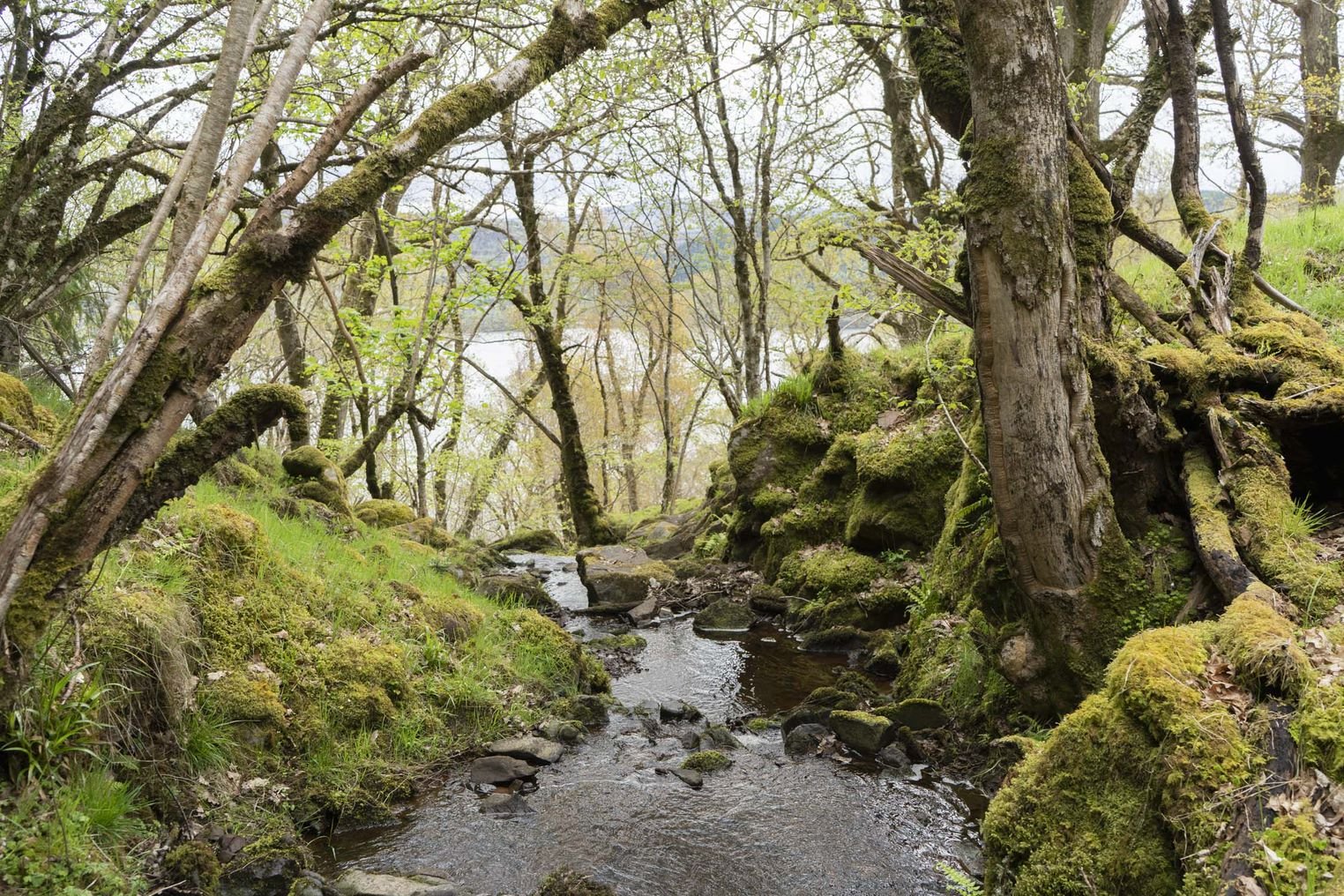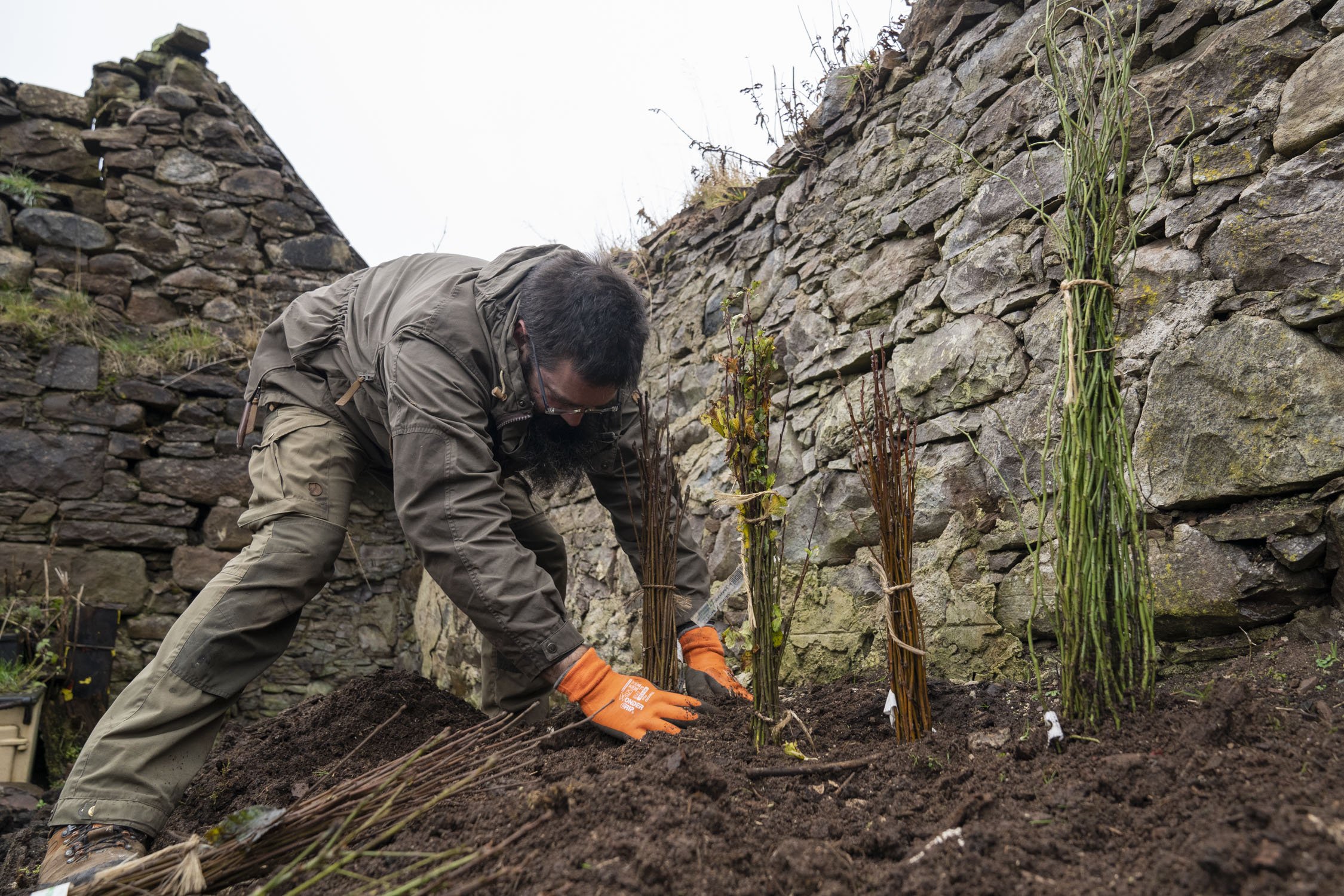In defence of the calculated risks inherent in our entrepreneurial model
In defence of the calculated risks inherent in our entrepreneurial model - Highlands Rewilding
Oil Executives: Seek redemption in nature recovery
Dr Jeremy Leggett, former oil man and founder of Highlands Rewilding, looks back on his own career and calls for oil-industry execs to invest “guilt” money into rewilding, funding nature recovery at scale.
Campaign Update: Tayvallich
Results from Highland’s Rewilding’s Race for Tayvallich
We have had an exciting and hugely encouraging campaign so far, and will be extending our financing campaign into March and April, now that we can offer confidence in our effort to buy the jewel that is Tayvallich.
Food forest establishment at Bunloit
Daniel Holm describes how Food Forests, a relatively unknown agroforestry practice, can help small areas of land produce a high diversity of high value crops, discussing the heritage fruit and nut varieties chosen for establishment on a Highland estate.
Winter bale grazing at Beldorney
Winter bale grazing at Beldorney and a 1 minute video introducing regenerative agriculture and controlled grazing on our Scottish estates
Highlands Rewilding: governance and land colonialism
A core premise of the Highlands Rewilding model is that you can’t have nature recovery without community prosperity, and vice versa. We capture that in a mantra that we repeat over and over: “our purpose” - the reason why we exist - “is nature recovery and community prosperity through rewilding taken to scale in Scotland.”
On Carbon Offsetting
Highlands Rewilding welcomes the recent Guardian, Die Zeit and SourceMaterial investigation into carbon offset credits. We believe that continuous and rigorous scrutiny is essential to ensure that carbon and other nature-based credits genuinely contribute to climate change mitigation and biodiversity recovery. We explore here a number of issues that we see as particularly important.
Unlocking Scotland’s Soil
‘Unlocking Scotland’s Soil’ is the second of a series of short campaign films exploring our crowdfund to scale nature recovery in Scotland.
My Great Hope - helping nature fight back
‘My Great Hope’ is the first of a series of short films we will release each week during our campaign to scale nature recovery in Scotland.
Second Natural Capital Report
Our Second Natural Capital Report paints a picture of tremendous potential for increasing both carbon storage and biodiversity at Beldorney in Aberdeenshire
Scotsman Podcast: Reaching net zero with Highlands Rewilding: do you want to be a ‘citizen rewilder’ and help nature recover?
The Scotsman Podcast: How becoming a ‘citizen rewilder’ with Highlands Rewilding can benefit the planet, the economy and local communities
Highlands Rewilding Crowdfund: December 2022 - February 2023
Highlands Rewilding is crowdfunding to raise funds to scale nature recovery in Scotland. An investment from you will help us transform carbon sources into carbon sinks, plant more native woodlands and create more Forests of Hope. Your support will help nature recover and give biodiversity a chance to thrive.
Podcast: Investment in natural capital
Over the next ten years Scotland will need £20 billion of capital in order to stop biodiversity decline and best use its peat, trees, soil etc to soak up greenhouse gases, according to the Green Finance Institute. Sounds a lot. But what price a liveable future, and social cohesion? We will have neither, if we allow biodiversity collapse and climate meltdown to run their course.
Presentation: A message of hope in Jeremy Leggett’s lecture at SRUC
In a lecture to students and faculty at SRUC’s Craibstone Campus in Aberdeen, Dr Leggett shared the story of his journey from solar entrepreneur to the field of natural recovery and his rewilding developments in the Highlands.
Green Health Week
Nature is beneficial in so many ways, including for our mental and physical health. The Highlands Rewilding Team are lucky enough to experience these effects while at work, and strongly support the creation of more green jobs so that others can too. This article lists some of the ways in which spending time outside can make us healthier and suggests ways that you can better engage with nature, whatever your work or life situation.
Life Blooms, Spring at Bunloit
Our Senior Ranger, Scott Hendry, writes about the joy that spring brings to Bunloit this year, with erupting wildlife and local high school students getting their hands dirty in the outdoor education classes.
Starting Your Own Food Forest
As a second part to the blog “Food Forests – A Resilient Solution for People and Wildlife”, Daniel Holm has written a step by step guide on how to start your own. The sustainable benefits of creating a forest garden will help as we face the uncertainties of the climate and biodiversity crisis, and with spring in full swing, this is the perfect time to create a resilient and biodiverse food source that will benefit yourself and nature.
The Bunloit Rewilding Project and Highlands Rewilding Ltd – Scaling Up
Highlands Rewilding is scaling the work of the Bunloit Rewilding Project, as a new mass ownership company. Read more about the change in company and branding, and how it all works together to help rewild the Highlands of Scotland, at scale.
Carbon, Research and Additionality - Interview with Ben Hart
Theo Stanley is a researcher from the University of Oxford, currently undertaking fieldwork for his PhD in Environmental Geography. He is researching how the increased turn towards ‘nature-based solutions’ and land-based carbon sequestration is affecting land governance in the Scottish Highlands. Throughout 2022, he is interviewing a wide range of folk interested in ‘nature-based solutions’, including foresters, land owners, entrepreneurs, rewilders and carbon specialists. If you have any questions, comments or opinions about the project, please don’t hesitate to contact him: theo.stanley@hertford.ox.ac.uk.
This article is a transcript of an interview between Theo and Bunloit’s Ben Hart.
Home Is Where the Heart Is
Maggie started working for Bunloit as a research assistant, back in the Spring of 2021. Having spent much of her childhood on the Bunloit hill, she reflects on what it means to be able return home and find work on a local rewilding project.




















